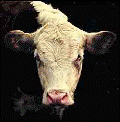Animal Science, Department of

Department of Animal Science: Dissertations, Theses, and Student Research
Date of this Version
8-2016
Document Type
Thesis
Citation
Martin, K. M. 2016. The effects of zinc supplementation from two sources on egg quality and bone health in laying hens [thesis]. University of Nebraska-Lincoln.
Abstract
The objective of this study was to compare zinc sources and levels of supplementation on laying hen performance. Bovan White Leghorn hens were fed one of six dietary treatments in a 2x3 factorial arrangement consisting of two zinc sources (Availa®Zn or zinc sulfate) and three levels (40, 80, or 120 ppm). Treatments were randomly assigned to 48 cages with five hens/cage. Blocks provided eight replicates/treatment. Hens were housed in a tiered manure belt housing system providing 97.2 cm2/hen. Hens were given 110 g/hen/day of feed ad libitum. Feed intake, egg production, egg weights, egg components, eggshell strength, body weight, bone mineral density, keel bone scores, manure zinc content, and feather scores were measured. Data were analyzed using the Proc Glimmix procedure in SAS. No significant treatment effects were found for feed intake, egg production, feed conversion ratio, body weight gain, egg weight, percent eggshell, bone mineral density, or prevalence of keel bone injury. The 80 ppm level of zinc resulted in significantly greater (P=0.048) eggshell breaking strength during months 5 and 7 regardless of source. Hens fed Availa®Zn had higher percent yolk (P=0.050) and lower percent albumen (P=0.031) compared to hens fed zinc sulfate. There was a significant overall source effect (P<0.0001) for manure zinc content such that hens fed zinc sulfate had lower amounts of zinc excretion. There was a significant level effect (P<0.0001) where hens consuming 120 ppm zinc excreted the greatest amount of zinc. A significant source by level interaction was observed (P<0.0001) for both the overall and individual analyses such that 120 ppm Availa®Zn showed the highest zinc excretion and both 40 ppm zinc sulfate and Availa®Zn showed the lowest zinc excretion. Hens fed 80 ppm zinc sulfate had significantly improved feather scores (P=0.031) over all other treatments, while hens fed 120 ppm Availa®Zn had the lowest feather scores. Based on these results Availa®Zn may improve eggshell breaking strength and percent egg yolk.
Advisor: Sheila E. Purdum


Comments
A THESIS Presented to the Faculty of The Graduate College at the University of Nebraska In Partial Fulfillment of Requirements For the Degree of Master of Science, Major: Animal Science, Under the Supervision of Professor Sheila E. Purdum. Lincoln, Nebraska: August, 2016
Copyright (c) 2016 Kelli Marie Martin